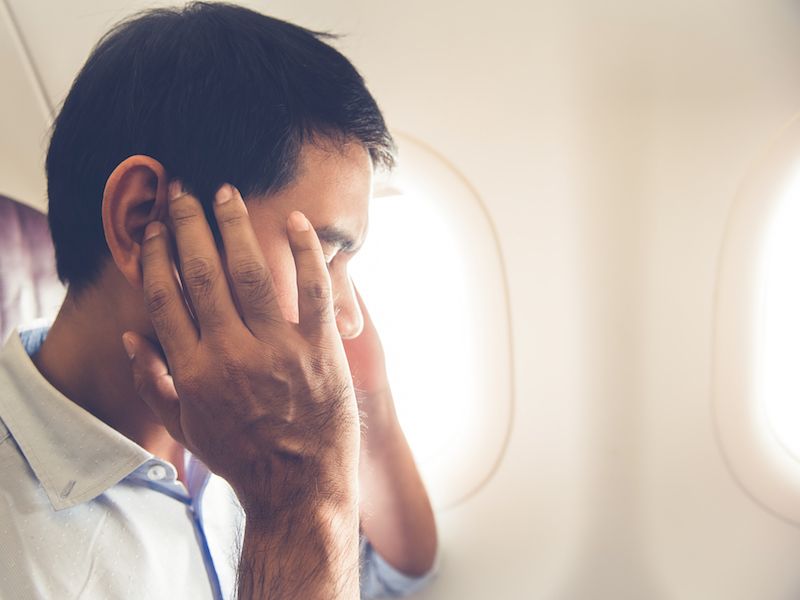
You have good days, and you have bad days, that’s par for the course for individuals who suffer from tinnitus but why? Tinnitus is the medical name for ringing in the ears, a condition that more than 45 million Americans endure, according to the American Tinnitus Association, and comes along with hearing loss by about 90 percent of them.
But that doesn’t explain why the ringing is intrusive some days and virtually non-existent on others. Some common triggers may explain it but it’s still not clear as to why this happens.
What Is Tinnitus?
The following phantom noises are heard by people who suffer from tinnitus:
- Clicking
- Hissing
- Ringing
- Buzzing
- Roaring
One of the things that makes tinnitus so troubling is that you hear it but no one else can. The noise can vary in pitch and volume, too. It may be gone one day and the next it’s a roar.
Exactly What Causes Tinnitus?
Changes in a person’s hearing are the most prevalent cause. These changes might be due to:
- Aging
- Earwax build up
- Noise trauma
- Ear bone changes
There are other potential causes, also, like:
- Atherosclerosis
- Acoustic neuroma
- TMJ problems
- High blood pressure
- Tumor in the head or neck
- An issue with the carotid artery or jugular vein
- Meniere’s disease
- Head trauma
For a certain percentage of people, there isn’t any obvious reason for them to have tinnitus.
If your tinnitus is new, consult your doctor to find out what is going on with your ears. The issue might be a symptom of a life threatening condition like heart disease or it could be something treatable. It could also be a side effect of a new medication.
For some reason the ringing gets worse on some days.
The explanation for why tinnitus is more severe on some days is somewhat of a medical mystery. And there could be more than one reason depending on the person. However, there could be some common triggers.
Loud Events
Loud events like concerts, club music, and fireworks are enough to aggravate your tinnitus. The number one option is to put in ear protection if you expect a lot of noise. They make earplugs, for example, that will allow you to enjoy music at a live performance but reduce the effect it has on your ears.
Another thing you can do is to put some distance between you and the source of the loud sound. When you attend a fireworks show don’t go up front and avoid the front row at a live performance. Combined with hearing protection, this could diminish the effect.
Loud Noises at Home
Things around the house can be just as aggravating as a loud concert. Tinnitus can be triggered by a lawn mower for example. Think about other things you do at home that may be an issue:
- Woodworking – Power tools are loud enough to be an issue.
- Wearing headphones – It might be time to get rid of the earbuds or headphones. Their job is to increase the volume, and that might be irritating your ears.
- Laundry – For example, if you fold clothes while the washer is running.
If there are activities you can’t or aren’t willing to avoid such as woodworking, wear hearing protection.
Workplace Noise
Loud noises on the job are just as harmful as any other. If you work near machinery or in construction it’s especially important to use hearing protection. Your employer will most likely provide hearing protection if you inform them of your concerns. Let your ears rest during your off time.
Air Pressure Changes
Many people have experienced ear popping when they take a plane. The change in air pressure combined with the noise from the plane engines can result in an increase in tinnitus. If you are traveling, bring some gum with you to help neutralize the air pressure and consider hearing protection.
You can experience changes in pressure without leaving your home, as well. If you have sinus problems, for example, consider taking medication to help alleviate them.
Medication
Speaking of medication, that might also be the issue. Some medications are ototoxic, meaning they affect the ears. Some common medications on the list include:
- Over-the-counter pain relievers
- Antibiotics
- Diuretics
If you’re experiencing a worsening of your tinnitus after you start taking a new medication, seek advice from your doctor. It may be possible to switch to something else.
Tinnitus is an irritation for some people, but for others, it can be debilitating. To be able to figure out how to control it from day to day, the first step is to find out what’s causing it.